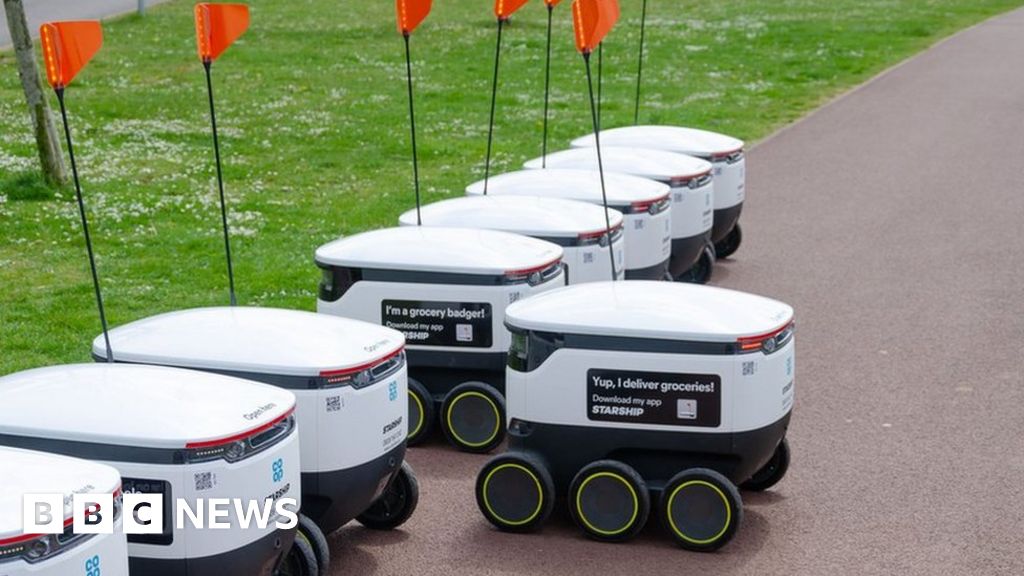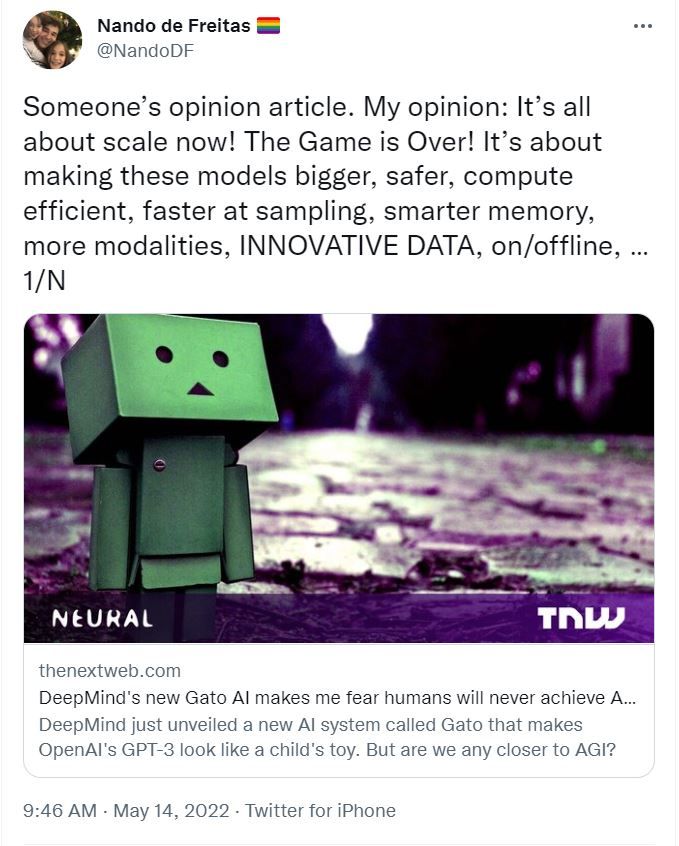Welcome to Nural's newsletter where you will find a compilation of articles, news and cool companies, all focusing on how AI is being used to tackle global grand challenges.
Our aim is to make sure that you are always up to date with the most important developments in this fast-moving field.
Packed inside we have
- A medical digital twin for gut health;
- Groceries delivered by robots cut pollution and congestion;
- plus, deep learning in self-driving vehicles.
If you would like to support our continued work from £1 then click here!
Graham Lane & Marcel Hedman
Key Recent Developments
Imec makes strides in creation of a medical digital twin for gut health

What: The Inter-university Microelectronics Centre (IMEC) is a leading, non-profit, international R&D organization. It has announced plans to create a medical digital twin of the human gut. This will be achieved using a new "smart pill" with built in sensors that will take chemical and biological measurements, and record physical characteristics as it travels through the body. It will run for up to a week, keeping track of where it is, and transmitting data wirelessly. It is hoped that human trials will start early next year.
Key Takeaways: The human gut supports a complex ecosystem of trillions of microorganisms, which plays a fundamental role in human health. Humans react highly individually to changes in diet and other interventions. Check out ZOE who support in creating a view of how your body responds to food (https://joinzoe.com/). AI has promised personalised healthcare but this is currently a distant prospect because of these varied responses. Understanding the gut ecosystem may be a crucial step in better understanding these individual reactions.
Robot supermarket delivery trial in Cambridgeshire

What: A local authority, technology company and the Co-op supermarket have joined forces to make deliveries to a local community near Cambridge, UK. The project aims to cut the number of short car journeys, thereby reducing pollution and congestion. It is also expected that the venture will make life easier for thousands of residents. The robots are powered by zero carbon electricity with a delivery journey estimated to use as much electricity as boiling a cup of water.
Key Takeaways: There have been far reaching changes to the supermarket delivery model following the pandemic. Companies such as Gorillas seek to deliver groceries to your door in a matter of minutes. As a result, many retailers are moving to smaller, decentralised fulfilment centres. Local delivery by robots could be an important element of this model.
Wayve and Microsoft partner to scale autonomous vehicles

What: Wayve is a London-based company that applies deep learning to control autonomous vehicles (AVs). Wayve has recently announced a partnership with Microsoft to access the supercomputing infrastructure needed to develop AI-based models for AVs at a global scale. This follows Wayve raising $200 million in round B funding in January 2022. During training the company collects more than one terabyte of data per minute from real-time cameras and radar. It claims it is still seeing benefits as it scales up with more data. For example, a model trained solely in London apparently functions in 5 other UK cities without any adaptation.
Key Takeaways: Wayve claims a unique approach which it dubs AV 2.0. The approach involves co-designing the hardware and software with an end-to-end deep learning-based approach delivering a “holistically learned driver”. Many AV companies are struggling to live up to early, optimistic expectations, so it will be interesting to see whether a company with a different technological approach is able to make better progress.
Paper: Reimagining an autonomous vehicle
AI Ethics
🚀 U.S. cities are backing off banning facial recognition as crime rises
🚀 The time is now to develop community norms for the release of foundation models
🚀 AI harms are societal, not just individual
Other interesting reads
🚀 How AI can help the world fight wildfires
🚀 South African fisheries to benefit from an AI study of ocean ecosystems
🚀 AI sleep app may mean an end to sleeping pills for insomniacs
🚀 AI webinar: A.I., Clouds and the Climate on Friday 3 June from Information Sciences Institute, University of Southern California
Cool companies found this week
Workplace safety
Modjoul - The company provides a wearable device designed to keep workers safe while working. It is equipped with 6 sensors to collect motion, location, and environmental data. The company has received funding in the first round of investments from the $1 billion Amazon Industrial Innovation Fund.
Voxel - applies real-time AI to feeds from existing security cameras to provide actionable video intelligence such as detecting hazards, risky activities, and operational inefficiencies. The company has raised $15 million in series A funding.
Plant-derived nutrients
Brightseed - uses AI to analyse plants and identify those that are likely to be beneficially bioactive, or unstudied and analogous to existing compounds. It has mapped more than 2 million plants and already brought an AI-discovered “phytonutrient” product to market. It has raised $68 million in series B funding.
And Finally ... The Game is Over!
Following the recent launch of DeepMind’s Gato “generalist agent”, the Research Director at DeepMind, Nando de Freitas, takes to Twitter to make it clear that we are now on the path to Artificial General Intelligence ...

AI/ML must knows
Foundation Models - any model trained on broad data at scale that can be fine-tuned to a wide range of downstream tasks. Examples include BERT and GPT-3. (See also Transfer Learning)
Few shot learning - Supervised learning using only a small dataset to master the task.
Transfer Learning - Reusing parts or all of a model designed for one task on a new task with the aim of reducing training time and improving performance.
Generative adversarial network - Generative models that create new data instances that resemble your training data. They can be used to generate fake images.
Deep Learning - Deep learning is a form of machine learning based on artificial neural networks.
Best,
Marcel Hedman
Nural Research Founder
www.nural.cc
If this has been interesting, share it with a friend who will find it equally valuable. If you are not already a subscriber, then subscribe here.
If you are enjoying this content and would like to support the work financially then you can amend your plan here from £1/month!
